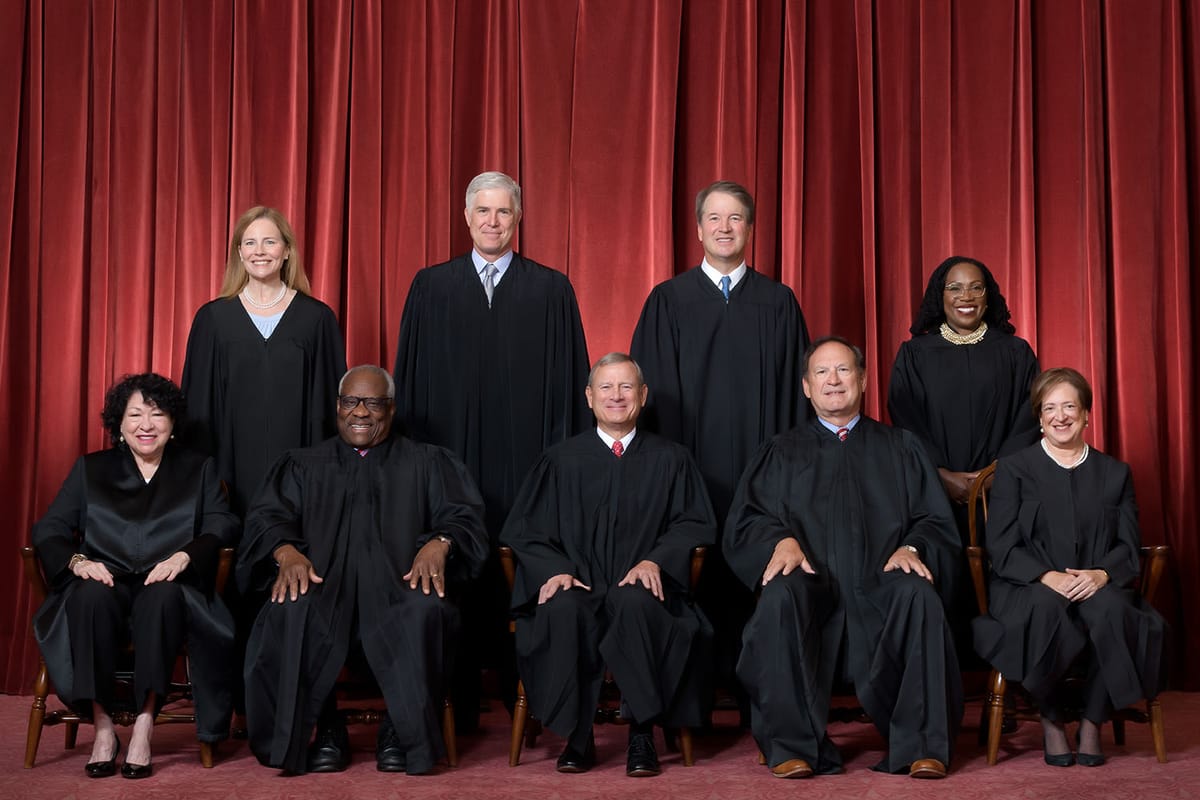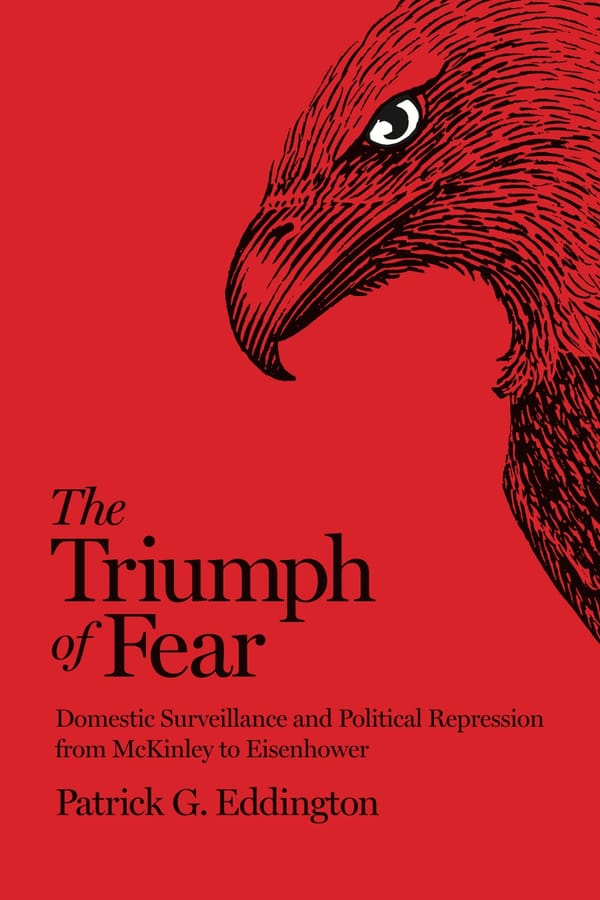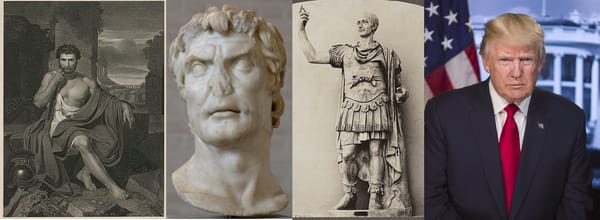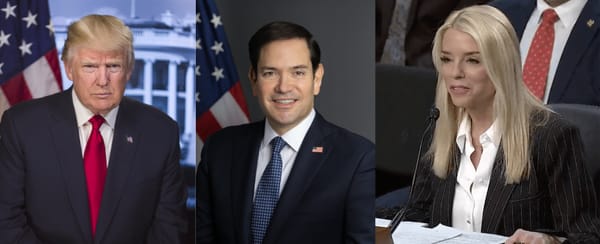Ballot Disqualification: Another SCOTUS Credibility Hit
All nine agreed states can't enforce a federal constitutional provision governing ballot access, but three accused the majority of insulating past and future insurrectionists from disqualification

As was rumored yesterday in multiple outlets, the United States Supreme Court (SCOTUS) did indeed today issue its decision in Trump v. Anderson. It would be fair to say that the majority did not take heed of what I and my colleague James Craven suggested last month. That part is not surprising. What does stand out about the decision is how five of the nine decided to make law on questions and issues that were not even before the Court in this case. In doing so, Roberts, Alito, Kavanaugh, Gorsuch, and Thomas elected to engage in the kind of judicial activism they themselves have so often decried in other cases.
The five in the majority on the core opinion completely ignored the fact that the language of the 14th Amendment itself is self-executing, instead creating a new requirement that Congress would have to enact separate insurrection-related ballot disqualification language to give the provision legal force. From p. 11 of the opinion:
Any congressional legislation enforcing Section 3 must, like the Enforcement Act of 1870 and §2383, reflect “congruence and proportionality” between preventing or remedying that conduct “and the means adopted to that end.” City of Boerne, 521 U. S., at 520. Neither we nor the respondents are aware of any other legislation by Congress to enforce Section 3. See Tr. of Oral Arg. 123.
In fact, the House created an entire investigative committee—the January 6 Select Committee—that not only concluded Trump had engaged in insurrection but made a specific criminal referral to that effect to the Justice Department. It also impeached him on the same charge.
And while it’s true that the Senate barely acquited him, a clear majority voted to convict him. And Section 3 of the 14th Amendment simply mentions “Congress” passing legislation to ensure enforcement of the disqualification provision. It did not mandate that a concurrent joint resolution was required to do so. Thus, to any reasonable person, the House’s actions alone seem to satisfy the 14th Amendment requirement. In that respect, the SCOTUS majority opinion on this issue is clearly anything but reasonable…and the Court’s three liberals went much further in their critique of the judicial activism by their counterparts.
In a separate opinion, Justices Kagan, Sotomayor, and Jackson offered this analysis (pp. 3-4 of their opinion):
Congress, the majority says, must enact legislation under Section 5 prescribing the procedures to “‘“ascertain[] what particular individuals”’” should be disqualified. Ante, at 5 (quoting Griffin’s Case, 11 F. Cas. 7, 26 (No. 5,815) (CC Va. 1869) (Chase, Circuit Justice)). These musings are as inadequately supported as they are gratuitous.
To start, nothing in Section 3’s text supports the majority’s view of how federal disqualification efforts must operate. Section 3 states simply that “[n]o person shall” hold certain positions and offices if they are oathbreaking insurrectionists. Amdt. 14. Nothing in that unequivocal bar suggests that implementing legislation enacted under Section 5 is “critical” (or, for that matter, what that word means in this context). Ante, at 5. In fact, the text cuts the opposite way. Section 3 provides that when an oathbreaking insurrectionist is disqualified, “Congress may by a vote of twothirds of each House, remove such disability.” It is hard to understand why the Constitution would require a congressional supermajority to remove a disqualification if a simple majority could nullify Section 3’s operation by repealing or declining to pass implementing legislation. Even petitioner’s lawyer acknowledged the “tension” in Section 3 that the majority’s view creates. See Tr. of Oral Arg. 31.
Similarly, nothing else in the rest of the Fourteenth Amendment supports the majority’s view. Section 5 gives Congress the “power to enforce [the Amendment] by appropriate legislation.” Remedial legislation of any kind, however, is not required. All the Reconstruction Amendments (including the due process and equal protection guarantees and prohibition of slavery) “are self-executing,” meaning that they do not depend on legislation. City of Boerne v. Flores, 521 U. S. 507, 524 (1997); see Civil Rights Cases, 109 U. S. 3, 20 (1883).
The consequences of the majority’s judicial activism, and arguably direct encroachment upon the powers of Congress, they also make clear (p. 5 of the Kagan/Sotomayor/Jackson opinion):
Ultimately, under the guise of providing a more “complete explanation for the judgment,” ante, at 13, the majority resolves many unsettled questions about Section 3. It forecloses judicial enforcement of that provision, such as might occur when a party is prosecuted by an insurrectionist and raises a defense on that score. The majority further holds that any legislation to enforce this provision must prescribe certain procedures “‘tailor[ed]’” to Section 3, ante, at 10, ruling out enforcement under general federal statutes requiring the government to comply with the law. By resolving these and other questions, the majority attempts to insulate all alleged insurrectionists from future challenges to their holding federal office. (emphasis added)
Also of note is the separate opinion of Justice Barrett, who decided to go thoroughly political in attacking her liberal colleagues:
The majority’s choice of a different path leaves the remaining Justices with a choice of how to respond. In my judgment, this is not the time to amplify disagreement with stridency. The Court has settled a politically charged issue in the volatile season of a Presidential election. Particularly in this circumstance, writings on the Court should turn the national temperature down, not up. For present purposes, our differences are far less important than our unanimity: All nine Justices agree on the outcome of this case. That is the message Americans should take home.
Opposing judicial activism that innoculates potential or actual insurrectionists from accoutability is not “stridency”—it’s calling for the rule of law to prevail. And if anybody on the court has turned “the national temperature” up, it’s Barrett’s conservative colleagues.
Thanks once again for subscribing to the Sentinel. Please share widely.





